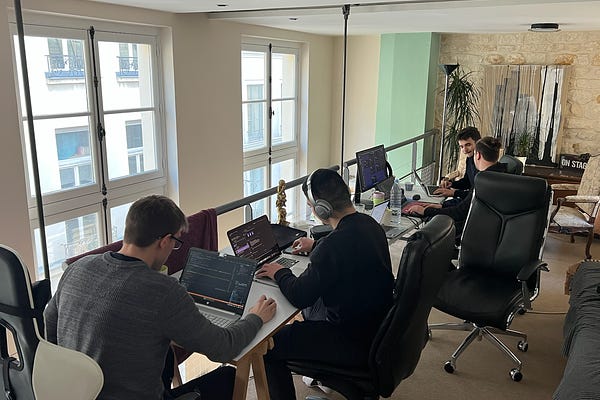Tokenization refers to the process of converting real-world assets, such as real estate, art, or even commodities, into digital tokens that can be traded, sold, or used in decentralized systems. These digital tokens represent ownership, access, or value associated with the original asset. With the rise of blockchain technology, tokenization offers increased transparency, security, and liquidity, making it an attractive solution for a wide array of industries.
Understanding Web3
Web3, often described as the “next generation of the internet,” marks a shift towards a decentralized online ecosystem. Unlike the traditional Web2, where centralized platforms dominate, Web3 relies on blockchain technology to enable peer-to-peer interactions without intermediaries. Web3 empowers users with greater control over their data and assets, and tokenization plays a crucial role in this decentralized revolution.
Purpose of the Article
This article aims to explain tokenization, particularly in the context of Web3 startups, and how they are reshaping industries. By exploring various applications of tokenization, real-world examples, and the legal landscape, we will provide insights into how startups are leveraging Web3 technologies to change the game.
The Basics of Tokenization
What is a Token?
A token in the blockchain ecosystem can represent a variety of things:
- Utility Tokens: Provide access to a product or service within a platform (e.g., Ethereum’s ETH).
- Security Tokens: Represent ownership of a real-world asset like stocks or real estate.
- Asset-backed Tokens: Are tied to physical assets, such as commodities or gold.
- Non-Fungible Tokens (NFTs): Represent unique digital assets like art, collectibles, or in-game items.
Each type of token offers distinct use cases, and they all depend on blockchain’s immutability to provide security and transparency.
How Tokenization Works
Tokenization involves creating digital tokens on a blockchain that represent the value of an asset. Smart contracts—self-executing contracts with the terms of the agreement directly written into code—are used to facilitate the creation, transfer, and management of these tokens. Through tokenization, assets are fractionalized, making it easier for more people to invest in and trade these previously illiquid assets.
Benefits of Tokenization
- Increased Liquidity: Tokenized assets are more easily traded on digital platforms, opening up new markets and allowing for fractional ownership.
- Fractional Ownership: Investors can own portions of high-value assets (like real estate or art), which makes investments more accessible to a broader range of individuals.
- Transparency and Security: Blockchain technology ensures all transactions are secure, transparent, and tamper-proof.
Key Technologies Behind Tokenization
- Blockchain: A decentralized ledger that records transactions across multiple computers, ensuring no central authority can control or alter the data.
- Smart Contracts: Automated, self-executing agreements that ensure tokenized transactions occur as intended.
- Consensus Algorithms: Ensure the integrity and agreement across the network before a token transaction is validated.
Understanding Web3 Startups

What Makes a Web3 Startup Different?
Web3 startups are unique because they operate on decentralized networks, using blockchain to disrupt traditional business models. These startups often prioritize transparency, user ownership, and community-driven governance. The decentralized nature allows for lower overhead costs and faster transactions without intermediaries, such as banks or centralized marketplaces.
Impact of Web3 on Startups
Web3 startups are transforming industries by utilizing tokenization to create new forms of value. For example, startups can raise funds through Initial Coin Offerings (ICOs) or Token Sales, offering early investors utility tokens that grant access to future services. This allows startups to bypass traditional venture capital channels and engage directly with their communities.
Examples of Web3 Startups Leading the Charge
- Polymath: A platform enabling the creation, issuance, and management of security tokens, facilitating the tokenization of traditional assets like stocks and bonds.
- RealT: A Web3 startup that tokenizes real estate properties, allowing investors to buy fractional ownership in rental properties and earn a share of rental income.
- OpenSea: One of the largest NFT marketplaces, allowing creators to tokenize their digital art and collectibles, creating new markets for digital ownership.
Tokenization Applications Across Industries
Tokenizing Real Estate
Real estate is one of the most promising sectors for tokenization. By tokenizing properties, Web3 startups make it possible for investors to own fractional shares of high-value properties, thus lowering the barrier to entry. Tokenized real estate can be bought, sold, and traded on digital platforms, enhancing liquidity and offering a new avenue for investment.
Tokenizing Art and NFTs
Tokenizing digital art through NFTs (Non-Fungible Tokens) has revolutionized the art industry. Artists can create and sell unique pieces of art as digital tokens, ensuring provenance and allowing collectors to trade these pieces in decentralized markets. This model provides a transparent and secure way to buy and sell art.
Tokenization of Commodities and Financial Assets
Startups are also applying tokenization to commodities like gold, oil, and even fine wine. These assets are digitized into tokens, enabling users to trade them as easily as stocks. Additionally, tokenized financial assets like stocks, bonds, and ETFs allow smaller investors to access markets that were once restricted to the wealthy.
Tokenization in Gaming and Virtual Worlds
In gaming, tokenization allows players to own, buy, and sell in-game assets such as weapons, characters, or skins. Platforms like Axie Infinity and Decentraland use blockchain to enable tokenized economies within virtual worlds, allowing gamers to monetize their digital possessions.
Tokenizing Intellectual Property and Patents
Web3 startups are also exploring the tokenization of intellectual property, such as patents and trademarks. By tokenizing intellectual property, companies can easily transfer ownership, license, or sell their rights to a global market, reducing friction and increasing access to these assets.
Web3 Startups Changing the Game: Success Stories
Real-World Examples
Web3 startups are leading the charge in tokenization across multiple industries. Polymath enables the creation of security tokens, making it easier to raise capital through tokenized equity. RealT has brought tokenization to real estate, allowing everyday investors to own portions of rental properties. These startups exemplify the potential of tokenization to open new markets and create value in ways that were previously unimaginable.
Innovations in Tokenization
Web3 startups are introducing groundbreaking business models that use tokenization to disrupt traditional industries. For instance, DeFi protocols allow users to earn passive income by staking tokens in liquidity pools, while NFTs have unlocked new ways for creators to monetize their work and engage with fans directly.
Growth and Challenges
While many Web3 startups have seen rapid growth, they also face challenges. Regulatory uncertainty, security risks, and the need for mass adoption are some of the hurdles that startups must navigate. However, the success stories of companies like Polymath and RealT prove that the tokenization model has the potential to revolutionize industries.
Legal and Regulatory Aspects of Tokenization
Regulation of Tokenized Assets
The regulatory landscape for tokenized assets is still evolving. Security tokens, in particular, must comply with existing financial regulations, such as those enforced by the U.S. Securities and Exchange Commission (SEC). However, as Web3 technologies continue to grow, regulators are expected to provide more clarity and frameworks for tokenization.
Challenges in Tokenization Compliance
Many Web3 startups face difficulties navigating the complex regulatory environment, especially in countries with ambiguous laws regarding digital assets. Regulatory uncertainty can slow down innovation, but some jurisdictions, like Switzerland and Singapore, have created favorable environments for blockchain and tokenization.
Future of Tokenization Regulation
As tokenization becomes more mainstream, we can expect clearer regulatory guidelines to emerge. Blockchain advocates argue that clearer rules will help foster innovation while protecting consumers, creating a more stable environment for startups to thrive.
The Future of Tokenization and Web3 Startups
Innovative Trends in Tokenization
The future of tokenization will likely see even more industries embrace blockchain technology. Decentralized finance (DeFi) is expected to continue its explosive growth, with tokenization playing a key role in expanding DeFi’s reach. Innovations like tokenized debt markets and AI-powered tokenomics could further transform the landscape.
Web3 and the Decentralized Economy
Web3 startups are laying the foundation for a decentralized economy, where ownership and control are distributed across individuals rather than centralized authorities. Tokenization will continue to play a pivotal role in enabling this shift, allowing people to exchange value, own assets, and participate in decentralized governance models.
Potential Roadblocks and Opportunities
While the future is promising, Web3 startups must overcome challenges like scalability, security concerns, and the need for widespread adoption. However, the opportunities for innovation are vast, and those who can navigate these obstacles will be well-positioned to lead the future of tokenization.
Conclusion
Tokenization in the Web3 era represents a monumental shift in how assets are valued, owned, and traded. Web3 startups are at the forefront of this revolution, leveraging blockchain technology to disrupt traditional industries and create new, decentralized markets. As tokenization continues to gain traction, it holds the potential to transform everything from real estate to finance, art, and gaming.
The future of tokenization is bright, and startups in the Web3 space are poised to lead the way. Whether you’re an entrepreneur, investor, or enthusiast, now is the time to dive into the world of tokenization and explore the opportunities it presents.

